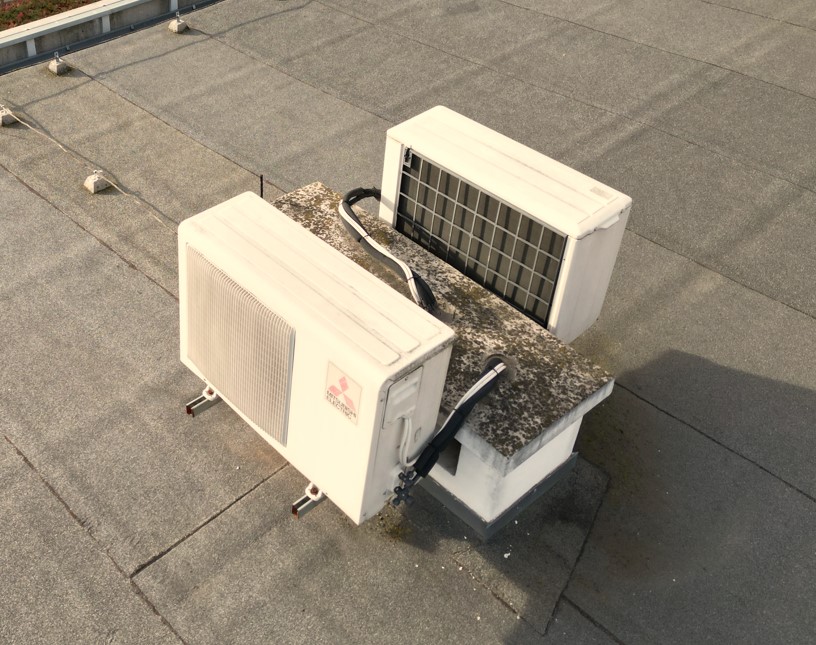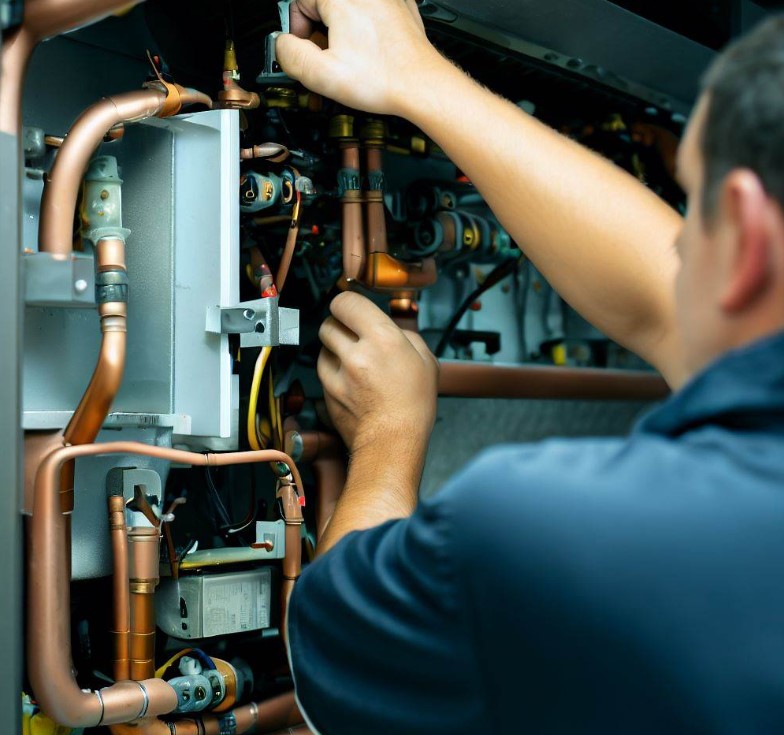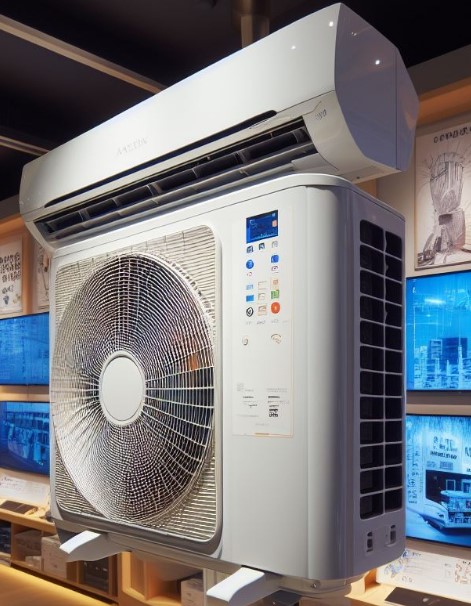In the dynamic and competitive landscape of the UK food industry, the success of a business goes beyond just the quality of ingredients and culinary skills. An often underestimated yet vital aspect is the role played by efficient air conditioning, ventilation, and refrigeration systems. These components not only ensure the freshness and safety of food products but also contribute significantly to customer satisfaction and regulatory compliance.
Proper refrigeration is the linchpin of food safety in any culinary enterprise. For businesses dealing with perishable goods, adhering to strict temperature controls is paramount. Refrigeration systems not only prevent bacterial growth but also extend the shelf life of products, minimising waste and maximising profits. Beyond the preservation of food items, these systems also play a crucial role in maintaining the texture, flavour, and nutritional content of ingredients. By creating an optimal storage environment, businesses can ensure that their offerings consistently meet the highest quality standards, fostering customer trust and loyalty. Additionally, a well-maintained refrigeration infrastructure reduces the risk of cross-contamination, safeguarding the integrity of diverse ingredients in a commercial kitchen setting. This level of precision and attention to detail not only aligns with industry regulations but also sets the stage for culinary excellence and the delivery of exceptional dining experiences.

The UK's diverse food scene demands a meticulous approach to preserving the unique flavours and textures of various cuisines. A well-designed air conditioning system plays a pivotal role in achieving this by maintaining optimal temperatures in kitchen spaces. By preventing heat-induced spoilage, these systems contribute significantly to ensuring the quality and taste of the final product. In a culinary landscape where authenticity and precision are paramount, the ability to control the kitchen environment becomes a critical factor in delivering consistent and exceptional dishes. This level of temperature control not only safeguards the integrity of ingredients but also empowers chefs to showcase the nuances of each culinary creation. Whether it's the delicate balance of spices in Indian cuisine or the precise cooking temperatures for a perfectly seared steak, a reliable air conditioning system becomes an indispensable ally in meeting the exacting standards of the UK's discerning food enthusiasts. Beyond preserving the culinary essence, these systems also contribute to a comfortable and productive working environment for kitchen staff, enhancing overall operational efficiency in the pursuit of gastronomic excellence.
Regulatory compliance is a cornerstone for any successful food business operating in the UK, where stringent health and safety regulations are in place. Adequate ventilation stands out as a crucial element in meeting these regulatory standards, particularly in the demanding environment of commercial kitchens. The maintenance of high air quality is imperative not only for the well-being of kitchen staff but also for preventing the accumulation of pollutants that could compromise food safety and hygiene. In a commercial kitchen setting, where various cooking processes release fumes, heat, and airborne particles, a well-designed ventilation system acts as a frontline defence. It efficiently removes contaminants, reduces excess heat, and minimises odours, creating a safer and more comfortable working environment for chefs and kitchen staff. Moreover, compliance with hygiene standards is a non-negotiable aspect of running a food business. Proper ventilation helps mitigate the risk of cross-contamination and ensures that air circulation meets the required standards. This not only safeguards the health of both customers and staff but also contributes to upholding the reputation and credibility of the business. Beyond the practical implications, a properly ventilated space demonstrates a proactive commitment to regulatory requirements. It showcases the business's dedication to creating a safe, healthy, and compliant environment, emphasising a responsible approach to food preparation. This commitment can enhance the business's standing with regulatory authorities, potentially resulting in smoother inspections and fewer compliance-related challenges. In essence, investing in adequate ventilation not only aligns with legal obligations but also reflects a commitment to the highest standards of food safety and hygiene. It contributes to the overall success of the business by fostering a regulatory-compliant and customer-trusted operation.

A comfortable dining environment stands as a pivotal factor in determining customer satisfaction within the competitive landscape of the UK's vibrant food industry. Well-maintained air conditioning systems play a crucial role in crafting a pleasant atmosphere, contributing significantly to the overall dining experience for patrons. Temperature control is a subtle yet influential element in creating an inviting ambiance. A carefully regulated dining space ensures that customers can enjoy their meals in comfort, free from the discomfort of excessive heat or cold. This attention to the overall environment enhances the overall dining experience, making it more enjoyable and memorable. In a market where choices abound, positive dining experiences are key to attracting and retaining customers. Patrons are more likely to return to establishments where they feel comfortable and well cared for. Additionally, satisfied customers become advocates for the business, sharing their positive experiences through word-of-mouth recommendations and online reviews. In the age of social media and online platforms, these positive endorsements can significantly impact the reputation and success of a food-based business.
Moreover, a pleasant dining atmosphere contributes to the establishment's overall brand image. It communicates a commitment to customer well-being and satisfaction, distinguishing the business in a crowded market. In this way, well-maintained air conditioning systems become not only a functional necessity but also a strategic investment in customer loyalty and positive brand perception.
In summary, the comfort provided by a well-regulated dining environment, facilitated by reliable air conditioning systems, is a powerful driver of customer satisfaction. In a fiercely competitive market, the positive experiences generated contribute not only to repeat business but also to the organic growth of the business through enthusiastic recommendations and positive online feedback.

Efficient air conditioning, ventilation, and refrigeration systems contribute to the overall efficiency of food businesses. Streamlined operations lead to reduced energy costs, less downtime for maintenance, and improved staff productivity. This, in turn, positively impacts the overall bottom line and enhances the long-term success of the food business.
Efficiency in air conditioning, ventilation, and refrigeration systems is more than just a matter of comfort; it is a strategic investment in operational excellence. By maintaining optimal conditions for food storage and preparation, businesses can realise a range of operational benefits that directly influence their financial health.
Firstly, streamlined operations translate to reduced energy costs. Energy-efficient HVAC and refrigeration systems not only contribute to environmental sustainability but also lead to significant cost savings for the business. The reduced energy consumption reflects positively on the operational expenses, allowing the business to allocate resources more effectively.
Additionally, efficient systems minimise downtime for maintenance. Regular and preventive maintenance is essential for the longevity and reliability of these systems. When the equipment operates efficiently, the need for unscheduled repairs or extensive maintenance decreases, ensuring that the business can run smoothly without unexpected disruptions.
Improved staff productivity is another notable advantage. A comfortable and well-ventilated workspace enhances the working conditions for kitchen staff, promoting a more positive and efficient work environment. When staff members are comfortable, they are likely to be more focused, energetic, and engaged in their tasks, ultimately contributing to higher productivity levels.
This positive impact on operational efficiency extends beyond the kitchen to the front of the house, where a comfortable and inviting dining atmosphere is crucial for customer satisfaction. Staff members in a well-ventilated and temperature-controlled environment are better equipped to provide excellent customer service, further enhancing the overall dining experience.
In conclusion, the efficiency of air conditioning, ventilation, and refrigeration systems is a multifaceted contributor to the success of food businesses. From cost savings to improved staff productivity, these systems play a pivotal role in creating a conducive and efficient operational environment, laying the foundation for sustained success in the competitive food industry.
In the UK's vibrant food industry, the significance of robust air conditioning, ventilation, and refrigeration systems cannot be overstated. From ensuring food safety and quality to compliance with regulations and enhancing customer satisfaction, these systems play a multifaceted role. Investing in and maintaining these critical components is not just a business necessity but a strategic move that can elevate a food-based enterprise in a competitive market. As technology advances, adopting the latest innovations in HVAC and refrigeration becomes a forward-thinking approach that can contribute to long-term success in the ever-evolving world of culinary excellence.